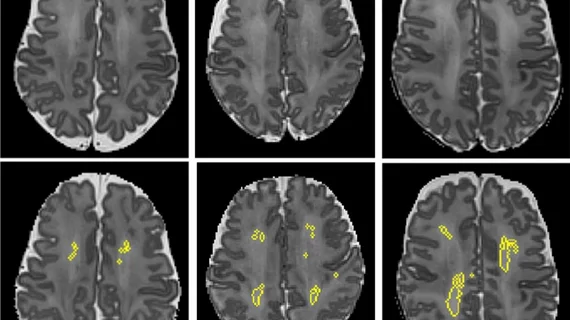New MRI algorithm could qualify more epilepsy patients for surgery
Researchers are hopeful that a newly developed MRI algorithm can open the door for the treatment of more patients with epilepsy.
When applied to brain imaging, the algorithm assists in the detection of subtle abnormalities in instances of drug-resistant focal cortical dysplasia (FCD), which is known to cause epilepsy and is historically difficult to detect.
The algorithm’s development and validation were detailed recently in the journal Brain. In the paper, the authors shared that they used more than 1,000 MRI scans from 22 different epilepsy centers to carry out the Multicenter Epilepsy Lesion Detection project (MELD).
“We put an emphasis on creating an AI algorithm that was interpretable and could help doctors make decisions,” co-first author, Mathilde Ripart, of the University College London Great Ormond Street Institute of Child Health said. “Showing doctors how the MELD algorithm made its predictions was an essential part of that process.”
To develop the algorithm, researchers quantified cortical features from the available MRI scans. They then trained it with the help of expert radiologists who labeled the brain imaging as being healthy or having FCD.
It was tested on a total of 538 patients, 178 of whom had their previous imaging deemed negative. The algorithm was able to detect FCD in 67% of the participants. Out of the patients who had previous negative imaging, 63% were found to have FCD on imaging when the algorithm was used.
The authors noted that their findings could result in more patients having their abnormalities detected, which would qualify them for surgery to remedy their symptoms.
"This algorithm could help to find more of these hidden lesions in children and adults with epilepsy, and enable more patients with epilepsy to be considered for brain surgery that could cure the epilepsy and improve their cognitive development,” said co-senior author Konrad Wagstyl of the UCL Queen Square Institute of Neurology.
The detailed study can be viewed here.

